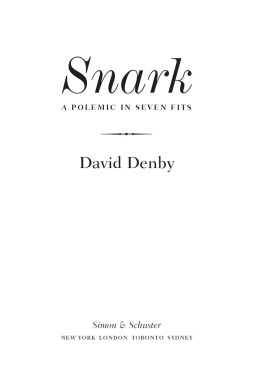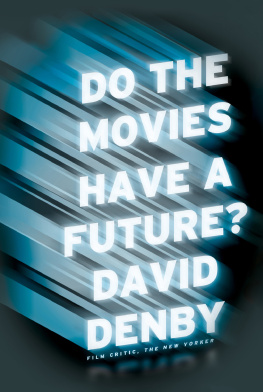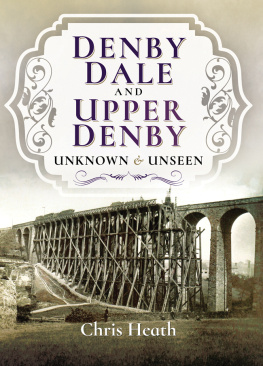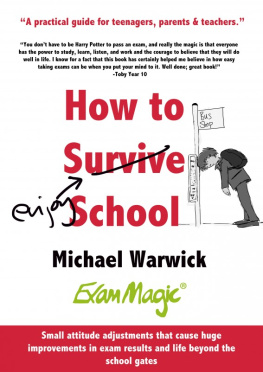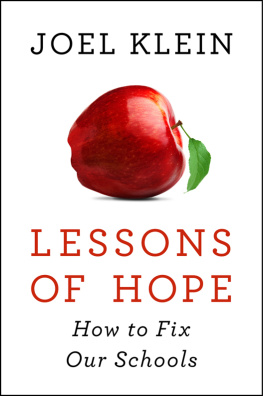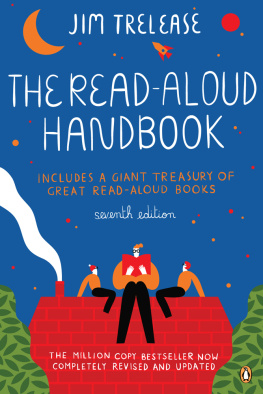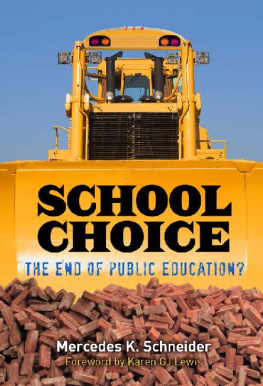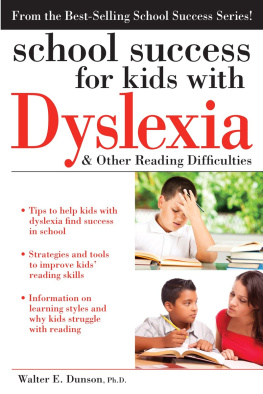
The author and publisher have provided this e-book to you for your personal use only. You may not make this e-book publicly available in any way. Copyright infringement is against the law. If you believe the copy of this e-book you are reading infringes on the authors copyright, please notify the publisher at: us.macmillanusa.com/piracy.
Dedicated to
MARGARET GRONINGER
MARY BETH JORDAN
SEAN LEON
MARY WHITTEMORE
JESSICA ZELENSKI
TEACHERS
I have sometimes dreamt, at least, that when the Day of Judgment dawns and the great conquerors and lawyers and statesmen come to receive their rewardstheir crowns, their laurels, their names carved indelibly upon imperishable marblethe Almighty will turn to Peter and will say, not without a certain envy when he sees us coming with our books under our arms, Look, these need no reward. We have nothing to give them here. They have loved reading.
Virginia Woolf, novelist, 1926
Where is the wisdom we have lost in knowledge?
Where is the knowledge we have lost in information?
T. S. Eliot, poet, 1934
You dont have to burn books to destroy a culture. Just get people to stop reading them.
Ray Bradbury, novelist, 1993
A reader lives a thousand lives before he dies, the man who never reads lives only one.
George R. R. Martin, novelist, 2011
Books smell like old people.
student, age 15, New Haven, 2014
Well, maybe not on the way home from the hospital. Maybe when the baby is six weeks old, or when she begins smiling. That might be a good time to pull her into your lap, or prop her up between you and your spouse or partner. Turning through pages, you read aloud a picture book. She wont remember the words or pictures, but an impression of being held and read to will remaina familiarity with the experience, an emotional reminder of pleasure, especially when its repeated hundreds of times. Second part of the deal: you talk to your baby constantly, from birth, telling stories, pointing out the things of the world, defining words, asking questions, and gently demanding answers when shes old enough to give them. Like a child in a fairy tale, she will possess an unknown power, which, sooner or later, will burst forth. The reading ego, and the speaking ego, need thousands of little victories before they assert themselves without fear, and she will be ready. A child held, read to and talked to, undergoes an initiation into a useful life; she may also undergo an initiation into happiness.
Everyone agrees that establishing reading pleasure early in a childs life is a monumental achievement (and you do it, the pediatricians say, with books, not with screens); and everyone also agrees that the gap between those children who grow up loving books and active conversation and those who dontwith troubled school performance and restricted career opportunities likely for those who dontis a gap that gets set early and may be hard to close. Hard, but of course not impossible. It can be done in grade school and middle school. But what about high school? How do you establish reading pleasure in busy, screen-loving teenagersand in particular, pleasure in reading serious work? Is it still possible to raise teenagers who cant live without reading something good? Or is that idea absurd? And could the struggle to create such hunger have any effect on the character of boys and girls?
A few years ago, I was thinking about these issues, thinking in a non-productive, desultory way, and wondering, too, about high school reading lists (Does anyone read The Catcher in the Rye anymore? Is Hawthorne gone? Did anyone care?), when a stranger came up to me on the street. This sounds like an Upper West Side joke: Guy comes up to you on the street and starts talking about a school. The stranger was a teacher, Samuel Abrams, a dark-eyed, well-knit man in his middle forties with an intense way about him. For years, he had taught history and economics at a public school he loved, the Beacon School, on West 61st Street in Manhattan. He was on leave in 2011 (and, as it turns out, would not go back); he was writing a book on the economics of education. (His book is now finished: Education and the Commercial Mindset , by Samuel E. Abrams, director of the National Center for the Study of Privatization in Education at Columbias Teachers College.) Sam told me about the school, a cramped, ridiculously overcrowded place with a gym so intimate that a jump shot launched from fifteen feet would scrape the ceiling. Beacon inhabited a cruddy old building never intended as a school. Yet the place had spirit, Sam said. It had interesting students, ambitious teachers, a decent library, dozens of computers. It was a progressive school but hardly a slack, feel-good place. The students worked hard.
Yes, but how much were the students readingin school, and on their own? And how much of it was quality of one sort or another? General information on such issues is not easy to come by. A Pew Research reading survey, conducted by telephone in 2014, reported that 46 percent of teens sixteen and seventeen said they read a book, including books for school, every day or almost every day. Since almost all the respondents at that age are students, 46 percent is not an impressive number. A recent summary of studies cited by Common Sense Media indicates that American teenagers are less likely to read for fun at seventeen than at thirteen. The category of reading for fun is itself a little depressing, since it divides reading into duty (for school) and gratification (sitting on a couch, beach towel), as if the two were necessarily opposed. The category reinforces the idea that an assigned bookliterature, usuallycant be fun.
A more recent Pew survey, issued on April 9, 2015, reported that aided by the convenience and constant access provided by mobile devices, especially smartphones, 92% of teens report going online dailyincluding 24% who say they go online almost constantly. Apart from statistical studies, the testimony of teachers and parents is overwhelming; the evidence of ones eyes is overwhelming. In general American teenagers may be reading more sheer words than ever, but they are reading mostly on screens; they certainly arent reading many serious books. Most of them are incredibly busy. School, homework, sports, jobs, parents, brothers, sisters, half brothers, half sisters, friendships, love affairs, hanging out, music, and, most of all, screens (TV, Internet, social networking, games, texting)compared to all of that, reading is a weak, petulant claimant on their time. Books smell like old people, I heard a student say in New Haven.
When they were very young, teens may have read Harry Potter , and later they may read dystopian and science-fiction novels, vampire romance, graphic novels (some very good), young adult fiction (ditto), convulsively exciting street lit. By the time they are fifteen or sixteen, however, reading anything more demanding and time-consuming threatens to cut off their smartphone sense of being in touch with everyone and everything at once. Suddenly, they are not everywhere, they are there , on that page, in that time, moored, limited, and many are glum about it. Talk to them, and you will find out: being unconnected makes them anxious.
As they get older, many dont see why reading seriously should be important at all. Everyone knows how to read and write. Why do we need a whole class for it? Thats just stupid, a fifteen-year-old said to his teacher in Mamaroneck, New York. He was referring to English class. If students are thinking of college, they may have been told by their elders that a liberal arts education and the humanities in particular are a waste of time. In an economy demanding skill setsdefined narrowly as technical and business skillsthat stuff wont get you anywhere. But this is actual nonsense. We are producing more college graduates skilled in science, technology, engineering, and mathematics (the STEM subjects) than the economy can absorb. At the same time, employers have repeatedly said that they want to hire people with a good liberal arts education, people who can think, judge, and express themselves; they want people who can follow complicated instructions, talk in a meeting, understand fellow workers. They can always buy robots.
Next page

